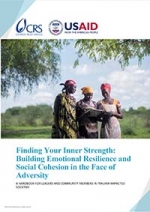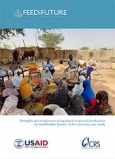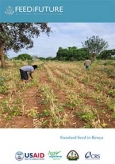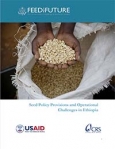Manuals | April 17, 2024
FINDING YOUR INNER STRENGTH: Building Emotional Resilience and Social Cohesion in the Face of Adversity
This 3rd edition of an “Introduction to Trauma Awareness and Resilience (TAR)” is expanded based on lessons learned in the application of the curriculum in South Sudan and elsewhere since 2014. Earlier versions were delivered alongside mainstream resilience components as part of CRS’s 3B (Binding, Bonding, Bridging) approach to peacebuilding and social cohesion. Four subsequent learning reviews (2016-2023) have confirmed the efficacy of this approach, with staff and community members reporting significant changes in their lives and work following their participation in TAR workshops: Relationships within families and between peer groups improved. Ordinary disagreements and disputes were settled or referred to traditional courts to prevent escalating to violence. Previously idle youth became engaged in productive activities like farming and bee keeping, which prevented them from joining armed groups. Mothers felt less stress in caring for their families, and community leaders grew empowered to exercise their civic duties. Overall, people conducted their social, political, and economic interactions more peacefully and harmoniously.
All activities in this manual can be offered in locations without electricity (even under a tree), with very basic training materials that can be found in every office or outside (e.g., small pebbles and sticks). Workshops last for 8 hours, typically spread across two half-days, although a short 3-hour module is available for integration with other programs, and supplementary activities for follow-up refresher sessions are also provided. Both community members and community leaders are targeted with separate workshop curricula, although some of the activities are common to both groups. The community members’ training requires no literacy at all, and adaptations to the local environment and culture are welcome. Important facilitator guidance is provided in the final section.
Let us know what you think or if you have any questions at [email protected].
Written by Lucy Y. Steinitz, Ph.D. with the support of David Malual and CRS/South Sudan





